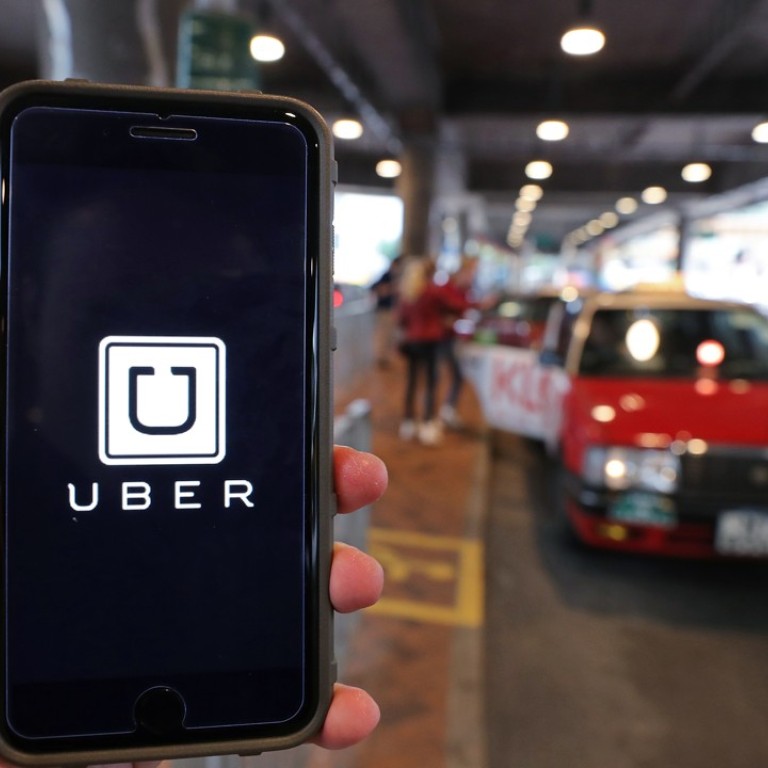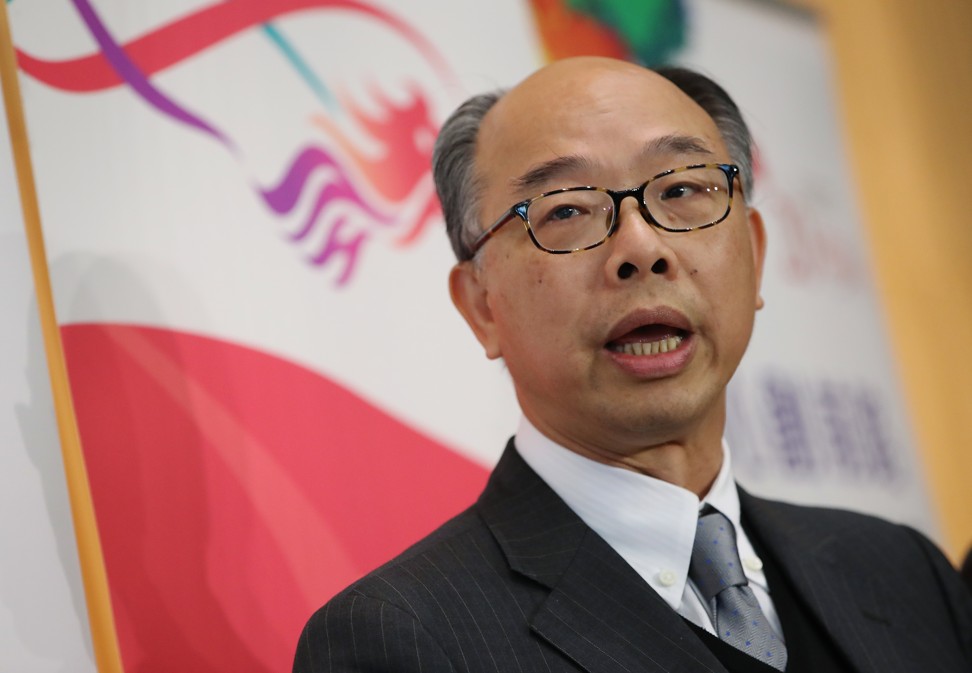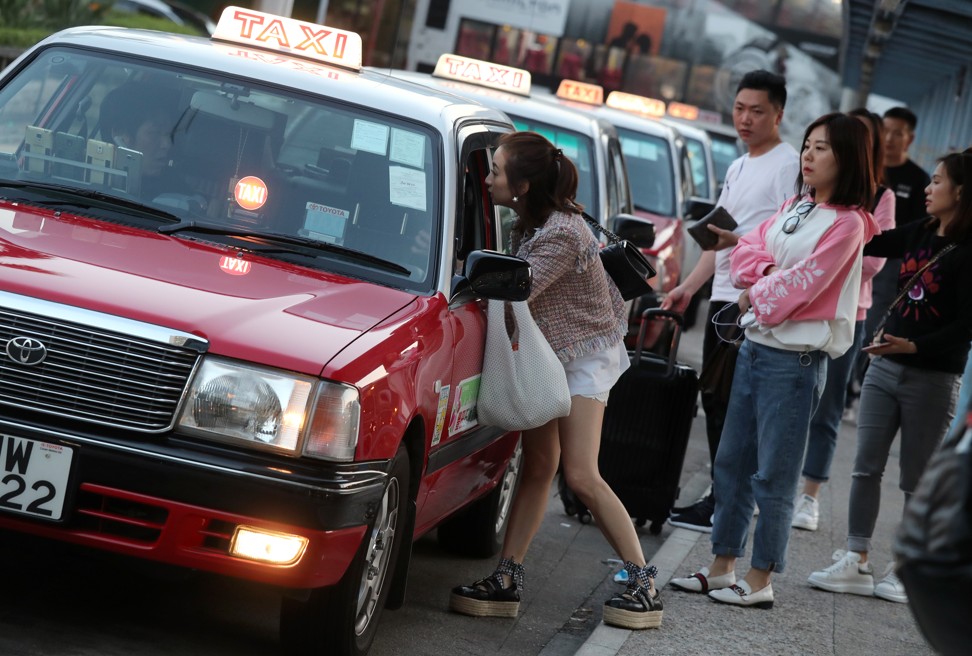
Exclusive | Uber’s outsized American ego a problem says Hong Kong transport minister as US Consulate gets involved
Frank Chan Fan makes remarks in closed-door meeting as tensions between US firm and city’s taxi industry show little signs of easing
The US Consulate in Hong Kong has reached out to the city’s taxi drivers to ease tensions with Uber, while the transport minister slammed the US ride-hailing firm for its “big ego”, the Post has learned.
There was immediate resistance from industry leaders, who said they would continue to oppose Uber unless it was willing to end its partnerships with private car owners.
The behind-the-scenes lobbying from US diplomats came as Secretary for Transport and Housing Frank Chan Fan accused Uber of trying to set the rules in a closed-door meeting with the innovation and technology sector last month.

“Uber has a big Americanism ego – I am the boss, and I am the rule setter who can set the rules of the game I play. Because of this mindset, Uber has clashed with the legal and cultural systems of many places in the world,” Chan told about 100 stakeholders in a private speech, a recording of which was obtained by the Post.
Chan made the remarks as Uber continued its uphill battle to make headway in a city where ride-sharing is illegal. Disgruntled taxi drivers have stepped up their war against the US firm for depriving them of business, with go-slow protests and threats of taking more drastic action to “defend” their rights.
Uber Hong Kong boss Kenneth She Chun-chi says it’s business as usual despite regional upheaval
During the closed-door meeting, the transport minister also said he met with Uber’s management in the city and advised them to operate within the law in Hong Kong – giving up the ride-hailing business.
One option, he suggested, was to work solely with the taxi industry by matching users with taxis, through which Uber could earn a small commission per trip.
“We had meetings with Uber,” Chan said. “We advised them to operate its business legally. There are many options like cooperating with the taxi industry. Under the taxi law, for every matching trip made with taxis, a firm can charge an additional HK$6. As there are almost one million taxi trips per day, you can imagine the profit.”
In response to questions on his comments from the Post, Chan’s office said the minister had nothing to add.
The US Consulate’s approach to local taxi groups was unexpected, and came in late March as the consulate attempted to get a feel for what the industry was thinking regarding Uber.
The Post has learned the move came after US diplomats read about Uber’s plans to roll out the UberFlash matching service for both taxis and private cars, in the hope of winning over hostile taxi operators.
However, industry leaders maintained their firm stance, with Chan Man-keung, a spokesman for taxi business platform Taxixchange, saying Uber needed to ditch its ride-hailing business otherwise there would be zero chance of cooperation with the city’s cabbies.
“The consulate’s economic officers approached us and would like to know why the taxi industry has been so against Uber,” Chan said. “They seemed to want to ease the tension, but they didn’t understand [Uber] is illegal here.”

He pointed out that in 2014 when Uber entered the Hong Kong market, it partnered with local cabbies by launching the lawful UberTaxi service, via its ride-hailing app.
“At that time under the law, Uber earned HK$5 for every matching trip with taxis,” Chan said. “Later, it started to get greedy and introduced the illegal ride-sharing business with private cars whom it can charge 25 per cent commission per trip. We then ended our partnerships and it also ceased the UberTaxi service in 2016.”
Chan estimated that if Uber continued its taxi app service it would have managed to get 15 per cent of the market share.
There’s no way that Uber can have the best of both worlds
“At present there are about 930,000 taxi trips every day in Hong Kong,” he said. “Assuming 15 per cent could be made through the app, HK$6 commission per trip could still make a lucrative business.
“There’s no way Uber can have the best of both worlds – making big money with an illegal ride-sharing business, without paying the multimillion-dollar taxi licensing fees.”
Kristin Haworth, spokeswoman for the US Consulate General Hong Kong and Macau, confirmed its diplomats had met with some industry representatives to gauge their views about Uber.
“As diplomats representing US interests in Hong Kong, we regularly meet with a wide range of stakeholders to exchange views and understand perspectives on economic, business, policy, and other issues,” Haworth said.
Hong Kong police officers posed as passengers in sting operation on Uber drivers, court hears
Asked if he thought the US Consulate had been lobbying for Uber, Kenneth She Chun-chi, the firm’s Hong Kong general manager, said Uber was grateful for its supporters in Hong Kong.
He said they still strived to find ways to regulate ride-sharing and explore ways to form a more “scalable and meaningful” partnership with local taxis.
“In many countries, customers can book a taxi via the Uber app and enjoy upfront pricing. When the right time comes, we want to introduce this to Hong Kong,” She said. “There will be ongoing discussion with taxi companies and it may take some time to reach all companies.”

